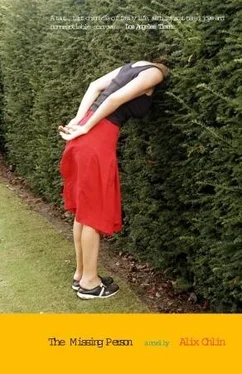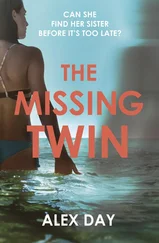“So you want to get a drink,” I said slowly. “Right now.”
He reached into the car and placed his hand flat against my forehead.
“You’re sure you’re all right to drive?”
I glared at him, and he grinned widely, his teeth gleaming against his dusty skin, and then sprang away from the door with a light, quick step. A millisecond later, it seemed, he was sitting on the passenger side.
The streets were crowded with traffic, and I rolled down the windows and sighed, asking myself what the hell I was doing. Angus gave me occasional directions and fiddled constantly with the radio, listening to ten seconds or less of every single song, ten words or less of talk. It was basically the most annoying thing ever. I kept glaring at him, which only made him laugh. This went on for fifteen minutes as mothers in minivans cut me off, truckers barreled down on top of me, and packs of teenage girls stared at us and giggled for no reason that I could see. I was sweating a lot and hating it. Finally Angus reached behind him into the backseat of the car, leaning far over to rummage around on the floor, his sweatpanted butt perilously close to my shoulder.
“What the hell are you doing?”
He turned around clutching a fistful of cassette tapes in his hands and sorted through them quickly before sticking one in.
I heard strings.
“The sweet sounds of Frank Sinatra,” Angus said. “They’ve always been a favorite of mine.”
“Is that right?”
“It is. Take this left on Indian School, please.”
The sweet sounds seemed to calm him down, and he sat looking out the window and mouthing the words. Two crooned songs later I pulled up at a motor lodge on a deserted strip of road. On the sepia-colored sign was a neon martini glass and the word “Cocktails” in a flowing script.
Angus leapt out of the car and opened the door to the cocktail lounge. Inside, through the gloomy dark, I could just make out booths with cracked red vinyl and tables made of dark pressed wood that was supposed to resemble mahogany. It looked like the set of a canceled TV show.
The waitress, a woman in her forties with a devastated face, sat smoking a cigarette on a stool at the bar. She wore a black miniskirt and beige panty hose with no shoes, and she was the only person there. We slid into a booth so small that my knees were touching Angus’s. I shifted around and crossed my legs. Angus leaned back and ran his hands approvingly over the vinyl. “I think I’m going to have a martini,” he said. “Would you like a martini?”
“Okay.”
“Jeanine,” he called to the waitress, who had not gotten up. “We’d like two martinis here.”
“Vodka or gin,” said Jeanine, stubbing out her cigarette with what appeared to be total exhaustion. She reached down past the ashtray to where her shoes — black flats — were sitting on the bar, then pulled them on with a grimace.
“Gin, of course,” Angus said. “And a big glass of water for my friend here,” he added, smiling at me. “You know, gin is the canonical martini. If I wanted a vodka martini I’d say a vodka martini. To distinguish it from the standard version, right?”
“Olives or a twist,” said Jeanine.
“Olives!” he said. “Olives, definitely.”
“Me too,” I said.
Jeanine nodded and set to work behind the bar.
Angus Beam would not stop smiling. He leaned forward, putting both his freckled hands palms down on the table. His fingernails were ragged and chapped around the edges.
“What’s so funny?” I said.
“Nothing.”
“You’re smiling like there’s something funny.”
“I’m smiling,” he said, “because I’m happy.”
To this I had nothing to say. Jeanine brought the drinks in small plastic glasses, two tiny dark olives, shriveled as raisins, speared on each toothpick.
“I didn’t think you’d do this kind of thing,” I said.
“What, go on a date? I just had the impulse. I’m an impulsive person.”
“This is a date?”
“Well. Never mind, if that’s not what you meant. Go on.”
“I meant going to a cocktail lounge. Drinking martinis.”
“Why would you think that?”
“I picture you and your friends in some kind of outdoor hut, drinking naturally refined alcohol that comes from, like, hemp or something.”
His eyes widened. “They can do that?”
“Not as far as I know, but I’m not the expert here.”
He winked and mouthed both olives off the toothpick at once. “Listen,” he said, chewing, “I think our world is an ungodly mess. That we live in a society overwhelmed by its own poisonous excesses. That people who don’t see the truth of this are blind or stupid or both. But a world in which a man can drink a martini with a beautiful woman on a sunny afternoon — well, that’s a world with some redeeming qualities.”
I rolled my eyes. “I guess I’ll drink to that,” I said. We clinked glasses and I raised mine to my lips. As I tipped it back the toothpick fell forward and I splashed gin down my chin and the front of my shirt. I flushed deeply and dabbed myself with a napkin. Angus noticed, but pretended not to, and I liked him for it.
When I finally got some gin down it filled me with a kind of gorgeous, beneficial warmth, as if I’d been cold without knowing it for days. The room dimmed then, and yellow light flickered in some plastic sconces on the wall. From some crevice of the lounge, music began to play, another crooning torch song, this time by a woman whose voice I didn’t recognize. It turned out to be Jeanine, sitting on her stool by the bar, her lips against a microphone connected to a karaoke machine. She stared at our booth and sang in a tuneless, gravelly voice:
I met a man in a hotel bar
He was in from out of town
He said I was cute
I thought he was quirky
He took me out for dinner
And fed me tangerines
He took me for all I had
And left me in Albuquerque.
At the end of the song she nodded and stood up, and we clapped. Into the microphone she murmured quietly, “The lyrics are my own.”
We drank one round and ordered another. We were still the only patrons.
“So,” I said. “Did you grow up in Albuquerque?”
He shot me an amused look. “No, I’m from Brooklyn,” he said. “Flatbush Avenue.”
“You’re kidding.”
“I am not.”
“So how’d you wind up out here?”
“You say that as if there’s something wrong with Albuquerque.”
“There’s nothing wrong with it. It’s just the middle of nowhere, that’s all.”
“I happen to like nowhere,” he said. “Besides, I found work here.”
“Which is?”
“I’m a plumber. I work for Plumbarama.”
“You fix toilets?” I looked at his fingers grasping the stem of his glass, at the dirt underneath the fingernails, and thought about that odor that surrounded him constantly: the smell of chemicals and ammonia and water.
“Toilets, sometimes, yes. Also sinks, bathtubs, washing machines, drainage systems, septic tanks. Nothing functions without plumbing. Nothing goes forward without leaving waste behind. Plumbing is the circulatory system of the civilized world. It allows us to forget our dirt, our shit and stink. It allows us to pretend. Wash our hands of it, as it were.”
“As it were.”
“But everything in this world has its price, even cleanliness. We can’t continue to pump our waste into the waterways without figuring out how to recirculate and clean it. We can’t allow First World nations to monopolize gluttonous quantities of water while Third World countries suffer for lack of it. If we don’t deal with plumbing, then we aren’t confronting the basic reality of our own presence here.”
Читать дальше












